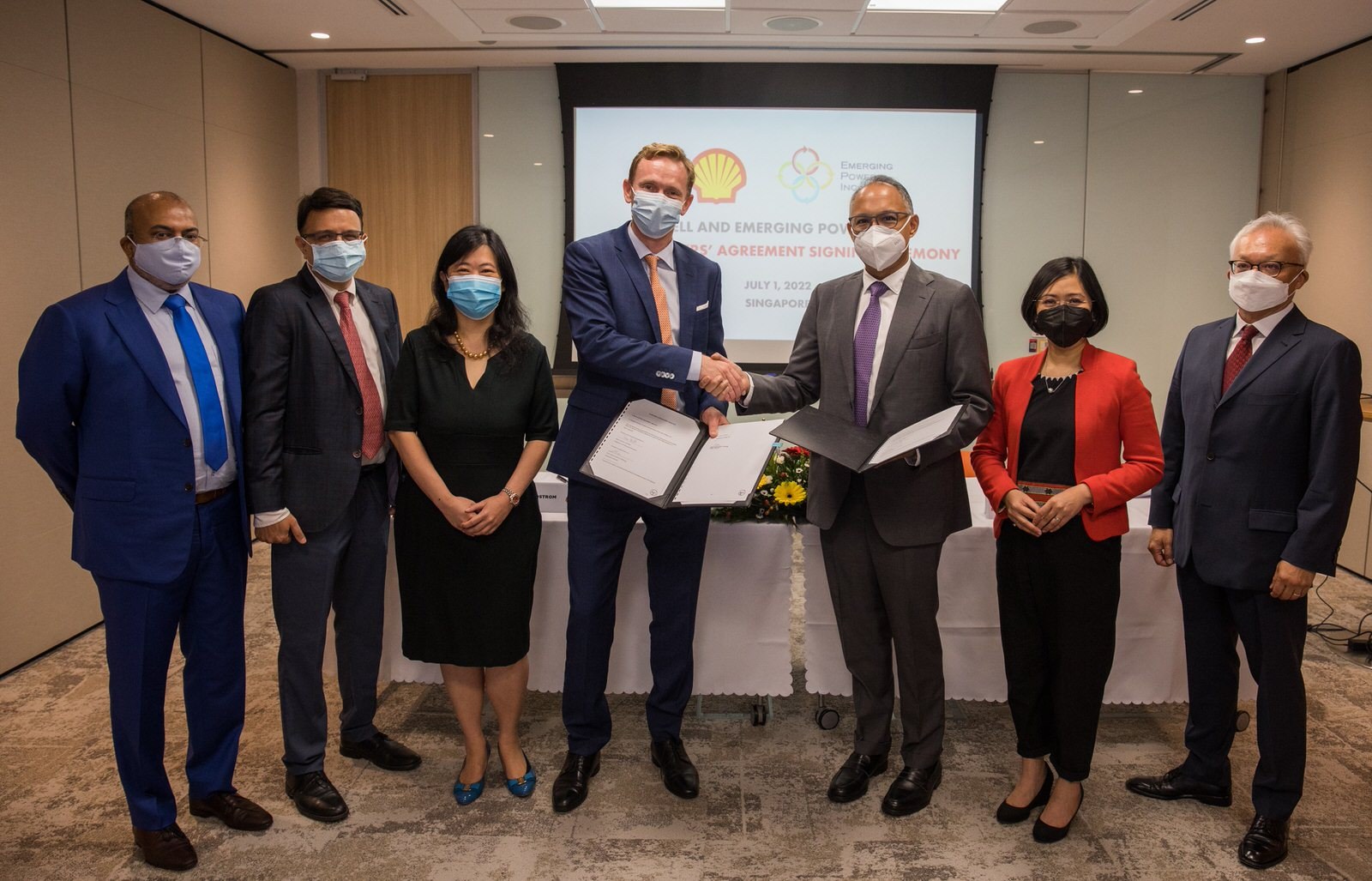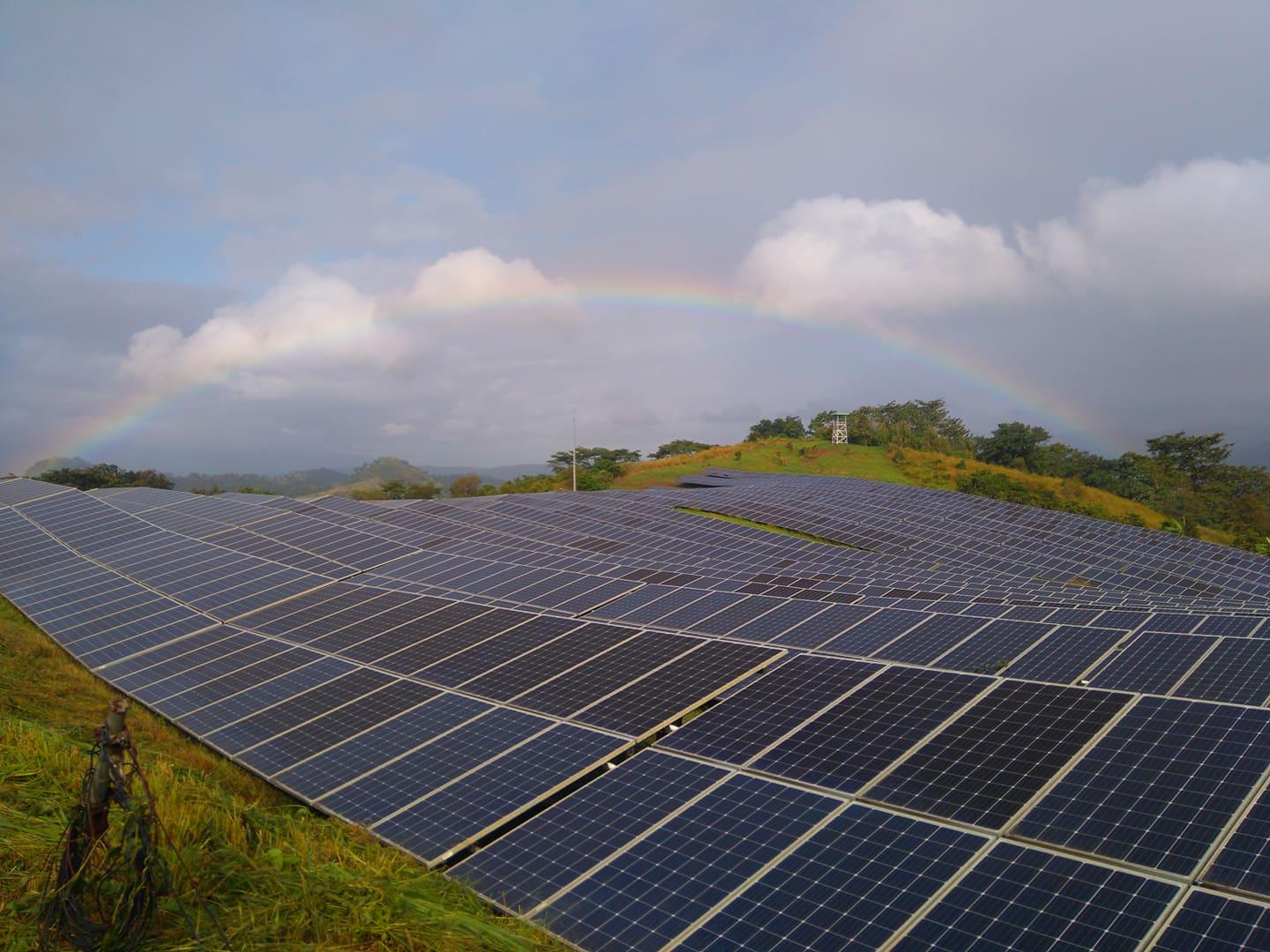Emerging Power Inc. (EPI), the renewable energy subsidiary of natural resources development company Nickel Asia Corp. (NAC), signed an agreement with Shell Overseas Investments B.V. (Shell) to jointly develop, own, operate, and maintain onshore renewable energy projects in the Philippines.

The EPI-Shell venture is targeting 1 gigawatt (GW) by 2028 with ambitions to contribute up to 3 GW into the country’s renewable capacity by initially rolling out a series of projects in Luzon and Visayas.
The focus will be on utility scale solar photovoltaic (PV) while evaluating opportunities in onshore wind and energy storage systems. Based on industry data, a gigawatt of solar PV can supply the annual daytime consumption of over 1.2 million homes in the country. A Filipino household typically consumes 200 kilowatt-hours a month1.
“The joint venture has the full support of EPI’s parent company, NAC. This partnership would allow both companies to boost the supply of renewable energy in the Philippines and is in line with NAC’s vision to become the premier ESG investment in the country,” NAC President and CEO Martin Antonio G. Zamora said.
“Working with partners and developing new collaborations is key to accelerate the energy transition. This Shell-EPI partnership will leverage on Shell’s technical expertise and integrated solutions as a global energy company and EPI’s strong presence in the Philippines. Together, we can power progress for the Philippines through sustainable energy for industries and homes,” said Lorelie Q. Osial, Country Chair of the Shell Companies in the Philippines.
This joint venture is an opportunity to provide integrated value to customers through exploring synergies with retail electricity supplier Shell Energy Philippines, Inc.
About Shell
Shell’s global reach, combined with 100+ years of global energy market experience and deeply embedded capabilities position it well to offer integrated decarbonisation solutions for its customers in progressing through the energy transition.
Bringing this expertise in the Philippines through this partnership with EPI reinforces Shell’s view of the country as an important market, given its over 108 years heritage.
About EPI
EPI has been growing its investments across various forms of cleaner energy including solar, wind, and geothermal and entered the year with more bullish prospects as governments all over the world are turning to renewable forms of energy in response to the global energy challenges.
EPI currently operates a 100-MW solar farm in Mt. Sta. Rita in the Subic Bay Freeport Zone in Zambales with a 230-kilovolt-transmission line under subsidiary Jobin SQM Inc. It also recently secured a second 100-MW solar service contract with the DOE for the Mt. Sta. Rita site, the development of which is slated to begin this year.
EPI is also developing pilot geothermal projects in Mindoro and Biliran. Once completed, the pilot operations may be expanded to realize potentially 20 MW in Mindoro and 50 MW in Biliran.
Philippine Energy Plan
The DOE, under the latest Philippine Energy Plan, aims to increase to 35 percent the share of renewables in the country’s power mix by 2030, to 50 percent by 2040. This means an additional renewable capacity of 73.9 GW must be realized over the next two decades.
Shell and EPI share the same vision of providing more, reliable, and sustainable energy for the country, in support of this Philippine Energy Plan.
1The monthly consumption of a typical Filipino household is calculated by the Economic and Social Commission for Asia and the Pacific based on data from the International Energy Agency. https://www.statista.com/statistics/600115/household-consumption-of-electricity-per-capita-in-the-philippines/ This computation is also used by the Department of Energy.

